Search
Search Results
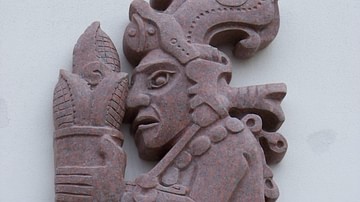
Article
Maya Food & Agriculture
For the Maya, reliable food production was so important to their well-being that they closely linked the agricultural cycle to astronomy and religion. Important rituals and ceremonies were held in honour of specialised workers; from beekeepers...
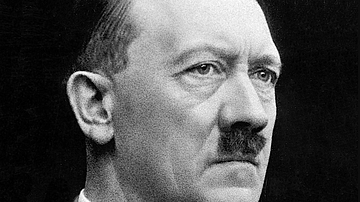
Definition
Adolf Hitler
Adolf Hitler (1889-1945) was the dictator of Nazi Germany from 1933. He gained power by making popular promises like improving Germany's economy and status in Europe, but when he took these policies too far, he was responsible more than anything...
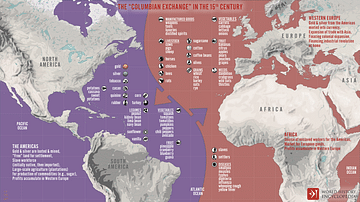
Definition
Columbian Exchange
The Columbian exchange is a term coined by Alfred Crosby Jr. in 1972 that is traditionally defined as the transfer of plants, animals, and diseases between the Old World of Europe and Africa and the New World of the Americas. The exchange...
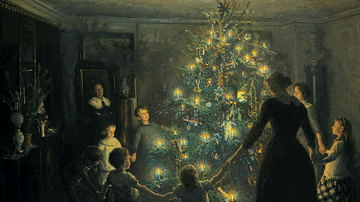
Article
Christmas Through the Ages
The Christmas holiday has gathered around it customs and traditions for over two millennia, some of which even pre-date the Christian festival itself. From gift-giving to the sumptuous spread of a Christmas dinner table, this article traces...

Article
In Darwin's Footsteps - Te Waimate Mission
The Bay of Islands is a subtropical region in New Zealand's far north and is a popular destination for big-game fishing, sailing, and dolphin watching. It is an area rich in the history of Maori (Māori in their own language) and European...
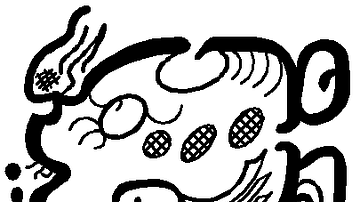
Image
Maya kakau glyph
This ancient Maya glyph is pronounced "kah-kah-oo." Various forms of this glyph can be found on Maya vessels, some of which are known to have contained chocolate in some form.

Video
What Montezuma's Aztec Sounded Like - and how we know
The Aztecs didn't call him Montezuma. Nor Moctezuma. They didn't call chocolate "chocolate". Heck, they didn't even call themselves Aztec! Though they were an oral culture, we have an idea of what their language really sounded like. Here's...

Video
Uncorking the Past: Ancient Ales, Wines, and Extreme Beverages (Clip 3)
June 4, 2011, The Getty Villa Clip 3: A Fermented Cacao Beverage from Central America In three highlight clips from this public lecture, Patrick McGovern, scientific director of the Biomolecular Archaeology Laboratory at the University...
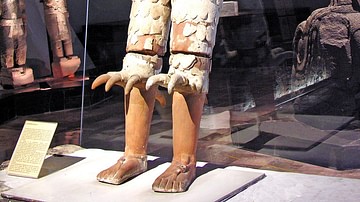
Definition
Aztec Warfare
The Aztecs engaged in warfare (yaoyotl) to acquire territory, resources, quash rebellions, and to collect sacrificial victims to honour their gods. Warfare was a fundamental part of Aztec culture with all males expected to actively participate...
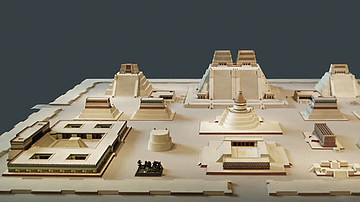
Definition
Tenochtitlan
Tenochtitlan (also spelled Tenochtitlán), located on an island near the western shore of Lake Texcoco in central Mexico, was the capital city and religious centre of the Aztec civilization. The traditional founding date of the city was 1345...